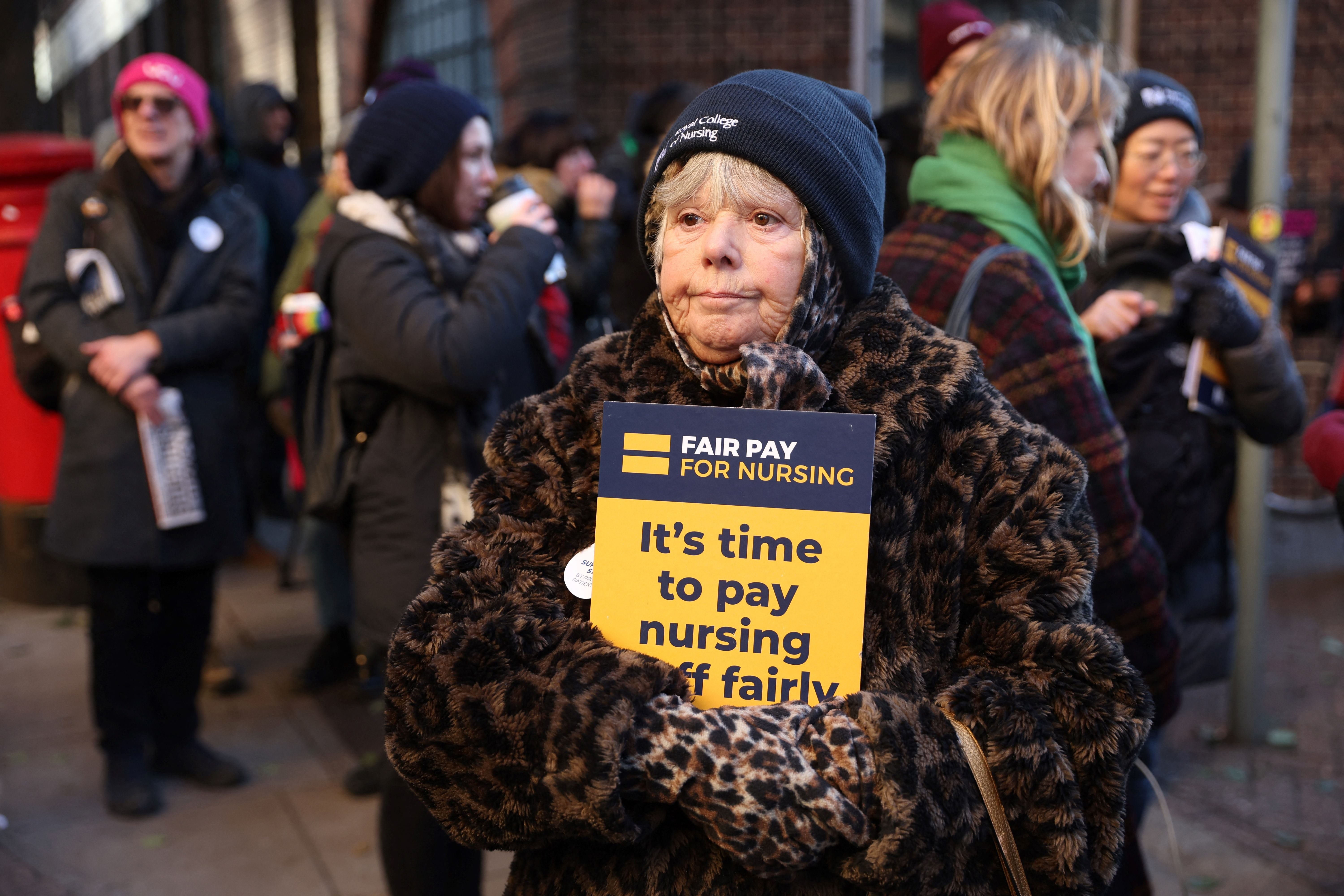New anti-strike laws won’t end well for Rishi Sunak
Creating martyrs out of striking nurses is a terrible strategy, says Sean O’Grady


Picture the scene: it is March, and splashed across websites, televisions, smartphones, newspapers and social media are a half-dozen emergency care nurses standing outside the hospital A&E where they used to work, and where their skills are still desperately needed by the patients inside, yards away. With them are some doctors who’ve been threatened with dismissal by their health trust because they refused to work to one of the new government-imposed “minimum service arrangements”. They are martyrs. National heroes. So are the leaders of the Royal College of Nurses and the British Medical Association, whose organisations face financial ruin because of punitive fines for non-cooperation in breaking their own strikes. Carers have been fired.
The doctors and nurses command huge public sympathy. Funds to support them during their campaign for reinstatement are flooding in on an embarrassingly generous scale. Petitions have been raised, marches and demos organised, and there is uproar in parliament. Steve Barclay is in hiding. The Tories face the start of the local election campaign with the railways, the hospitals and other public services still in chaos, and free trades unions deliberately bankrupted by a vindictive government that is too stubborn, lazy or incompetent to negotiate and settle a strike.
In this perfectly feasible scenario, guess what happens to the Tory vote on 3 May? This tableau illustrates the folly of relying too heavily on the law to solve political and economic problems. Ministers say other European countries have such laws, but generally they also have more trade union involvement in businesses and government, and such pacts will have been negotiated, not imposed.
At a time of high inflation and acute labour shortages, not least in the NHS, it is foolish to attempt to hold wages down and refuse to negotiate. In the long run, the laws of supply and demand are more powerful than any passed in Westminster. Only a deep recession and a pool of unemployed workers desperate for a job will drive wage inflation down (albeit this state of affairs is indeed presently being engineered by the Treasury and the Bank of England). Until then, staff will continue to leave the NHS for better-paid work elsewhere. Nurses cannot be conscripted.
In the short term, Grant Shapps’s new laws restricting the right to strike will also prove impractical. For obvious reasons, health trusts will be very unwilling to instruct highly trained paramedics, doctors and nurses to work to a rota on pain of dismissal. Besides, all health-service industrial action is governed by the “life and limb” rule, by which emergencies are always attended to, even if it means coming off a picket line. There is also the grim irony that what the government deems to be “minimum service” during a strike may actually be better than the usual service provided before the strikes even began.
In the case of the rail workers, border force staff or driving examiners, there might be less sympathy for their “martyrs” but they are already working out now to beat the new laws. It is becoming a cat-and-mouse game: the government passes a new law, then Mick Lynch of the RMT finds a smart way to evade it. So a new law is passed, and the RMT invents a new wheeze. So it has been with the higher thresholds for strike action ballots, and legalising the use of agency staff to break strikes. The cycle will begin again. For the purposes of service disruption, overtime bans, partial strikes, localised action, and working to rule will be just as effective and legal as a national strike. Without a small army of alternative railway staff to step in, measures short of strike action will bring the trains to a halt quite rapidly. Plus, the good relations and trust that any business needs to maintain with its staff, if it is to provide a good service, will be gone. Annoying Lynch isn’t such a good idea.
And so the new laws will fail. Either they will work in the way it is proposed, create martyred sacked nurses, and destroy the government’s authority that way; or they won’t work, and ministers will look even more out of touch and out of control.
The lessons of history are equally powerful. Successive governments have tried and failed to legislate for better industrial relations, and some even sent a few strikers to jail. The collapse of the 1971 Industrial Relations Act under union resistance remains an object lesson, and helped to hasten the demise of the then Conservative government under Edward Heath. For most of its life, the act was simply ignored. The Thatcher government in the 1980s won most of its scraps with the unions, but was helped by rising unemployment, blunting worker resistance, a modest step-by-step approach, and sufficient public support for the government’s policy. None of these things is true in the case of Shapps’s hasty proposals.
This government isn’t quite foolhardy enough to sling nurses into prison for striking, but making dedicated workers jobless because they assert a human right to withdraw their labour is almost as bad, and is no way to settle an industrial action. It really will not end well for Rishi Sunak’s government.



Join our commenting forum
Join thought-provoking conversations, follow other Independent readers and see their replies
0Comments